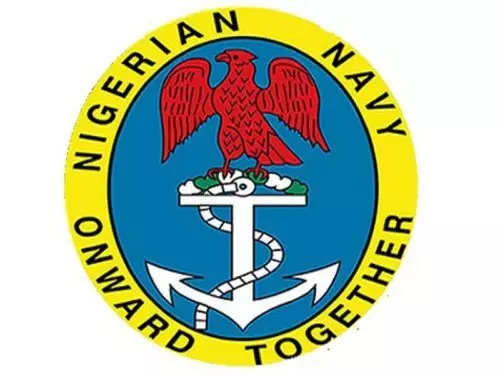
The Medical Laboratory Science Council of Nigeria on Thursday in Abuja, presented certificates of International Standard Organisation (ISO) 15189 accreditation to the Nigerian Navy (NN) Reference Hospital Laboratories in Lagos and Calabar. The Registrar of the council, Dr Tosan Erhabor, while presenting the certificates to the NN at its Headquarters, said it was a culmination […]

The Medical Laboratory Science Council of Nigeria on Thursday in Abuja, presented certificates of International Standard Organisation (ISO) 15189 accreditation to the Nigerian Navy (NN) Reference Hospital Laboratories in Lagos and Calabar.
The Registrar of the council, Dr Tosan Erhabor, while presenting the certificates to the NN at its Headquarters, said it was a culmination of the efforts of the service leadership to have quality laboratories in its reference hospitals.
Erhabor added that it was also a testament that the essence of medical laboratory services was understood and the goal was to ensure that the test results emerging from such medical laboratories were accurate, reliable and timely.
“When standards are maintained, service users would have similar experience from facility irrespective of their personal or other circumstances.
“It also exemplified reward and recognition for commitment towards excellence, the passion for quality and belief that there must be a better way of delivering service.
“The leadership of the service has shown tremendous commitment to the ideals of consistent excellent service delivery that underpins the quality of management system orchestrated by the council over the years.
“Now, the time has come for the facilities involved to be formally admitted into the Ivy league, exclusively reserved for those facilities that have virtually passed through proverbial eye of a needle and come out smelling of roses.
“All over the world, accreditation is an enabler of quality and a core component of good clinical management. It is patient focused, impartial and objective. It is also the hallmark of quality.
“It is rigorous and may seem daunting, requiring a significant sacrifice. But for those facilities that dare to embrace the process, enjoys certain benefits. Such as national/international recognition since it is based on an international standard,” he said.
He recalled that over the years, the council had a very cordial relationship with the Armed Forces in a bid to bequeath a world class health laboratory system that inspired confidence and discourages health tourism to other countries.
Earlier, the Chief of Naval Staff, Vice Adm. Awwal Gambo, said that attaining the ISO 15189 accreditation was another milestone in the service quest to provide qualitative healthcare for its personnel and their families.
“For us in the NN, emplacing qualitative healthcare is imperative for our personnel to enable them to discharge their constitutional responsibilities and requirement which cannot be overemphasised.
“Although the ships and other facilities and equipment remained indispensable, without a healthy workforce, the ships cannot fight and service will not be able to protect the nation’s maritime assets and its territorial integrity.
“The provision of a quality healthcare to personnel and their families constitute a key welfare responsibility of the service and the cornerstone of corporate social responsibility to our host communities.
“So, in view of the importance of quality healthcare, the service has committed enormous resources to the development and maintenance of its medical facilities. The most recent is the inauguration of NN reference hospital, Calabar,” he said.
Gambo, however, noted that in addition to the regular assessment and audit, quality assurance was further reaffirmed by accreditation, hence the pursuance and subsequent accreditation of the service laboratories.
This, he said had become imperative because, laboratories services were at the centre of accurate diagnosis of diseases anywhere in the world.
According to him, laboratories provide empirical data upon which clinical decisions are made which in turn explains the increasing emphasis on laboratory results for diagnosis and management of patients.
“Thus, with the emphasis placed on laboratory results, then no efforts should be spared in ensuring that the results are always accurate and reliable,” he said.
The CNS commended the council for good job in regulating the practice and improving the quality of laboratory services in the country, especially in institutionalising its accreditation programmes.




